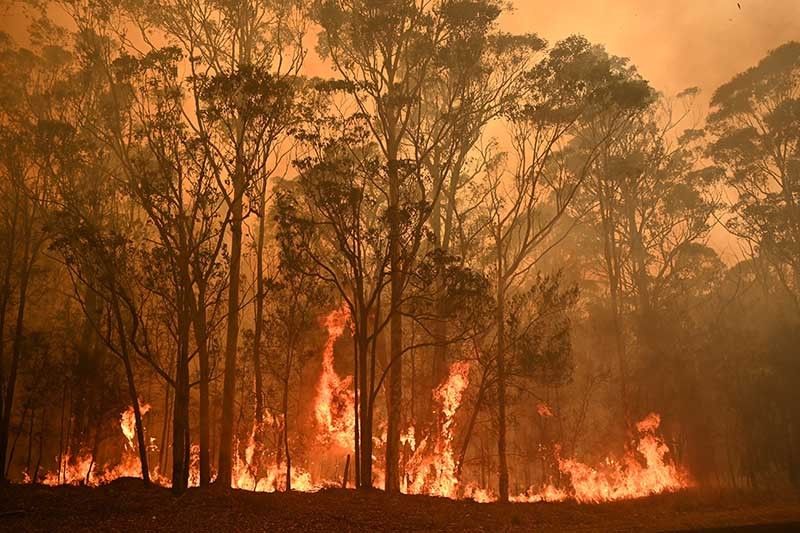Gov't urged to strengthen climate action, phase out coal to avoid Australia fire crisis

MANILA, Philippines — The unprecedented fire crisis that hit Australia—an example of the catastrophic impacts of climate change—should compel the Philippine government to scale up its climate action and phase out fossil fuels, environmental advocates said Friday.
The massive bushfires raging across Australia have reportedly killed roughly a billion animals and have burnt roughly 10 million hectares of land—an area larger than South Korea or Portugal—since it began in September last year.
Thaddeus Martinez, Haribon Foundation veteran forester, said the government should phase out coal plants and coal-mining operations to avoid adding forest fires to the growing list of hazards that the Philippines—a country vulnerable to disastrous effects of climate change—faces.
The Philippines is not at risk of large scale forest fires like the case in Australia, Martinez said. Global warming, however, could increase the occurrences of small forest fires.
“There is the same case of fire, but given that we have climate change, we can say that there are more hazards now compared to the previous decades,” Martinez said.
According to Martinez, 90% of all foreign fires in the Philippines are caused by human activities—with kaingin or slashing-and-burning of forests as the most common cause.
“Maybe there are some social aspects that we need to look at. Why are some people deliberately causing the fire? It’s not only the natural causes, but it’s anthropogenic as well,” he said, adding that there is a need to educate local communities about forest-related law, impacts of climate change and the importance of biodiversity.
Living Laudato Si Philippines said global leaders must recognize the urgency for mitigating climate change to prevent similar incidents in the future.
“We have a moral responsibility to our common dreams for our families for a safe and secured life at present and the future. This comes with the assurance of sustaining ecosystems,” Rodne Galicha, the executive director of the faith-based NGO, said.
Country’s reliance on coal
According to a Greenpeace report, coal remains the country’s dominant energy source with a 52.05% share in gross power generation by source in gigawatt hours despite the country’s commitment to move away from fossil fuels. Coal is a major contributor to the catastrophic climate change.
The share of renewable sources, meanwhile, stood at 22.27% as of December 2018.
Martinez urged the government to look beyond the short-term benefits of fossil fuels on economic development.
“It is not just the economic production supported by this power generation that needs to be examined, but also the impacts on us. Renewable energy power generation will be more appropriate,” Martinez said.
The United States said Wednesday the past decade was the hottest on record globally.
- Latest
- Trending
































